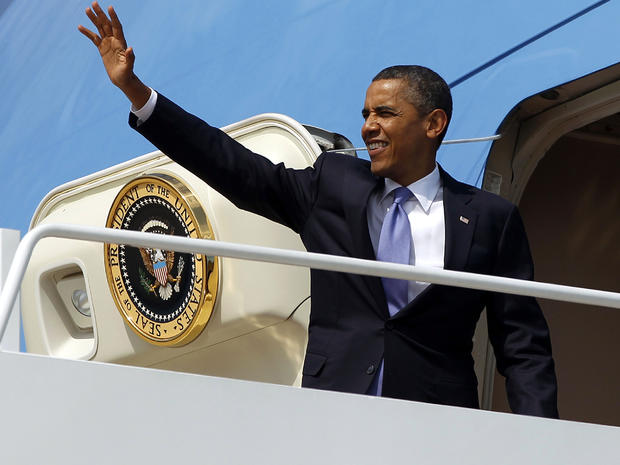How Obama uses the levers of power to boost his campaign
In response to the latest jobs report, former General Electric CEO Jack Welch claimed this morning that President Obama cooked the books to get the unemployment rate below 8 percent. There is no evidence to support Welch's conspiracy theory, which has been debunked by Republicans, Democrats, the Bureau of Labor Statistics and independent observers.
But that doesn't mean there aren't levers a sitting president can use to boost his chances for reelection. And Mr. Obama, like his predecessors, has taken advantage of them.
The two most obvious examples when it comes to Mr. Obama involve immigration and China policy. In June, the federal government announcedthat it would no longer pursue deportation of illegal immigrants brought to the United States as young children who "do not present a risk to national security or public safety," in the words of the Department of Homeland Security. Mr. Obama was able to institute the policy using an executive order, which allowed him to circumvent the Congressional Republicans who had blocked the DREAM Act.
"That closed the enthusiasm gap among Latinos, and that's especially important in battleground states of Nevada, Colorado, Virginia and Florida," said American University professor James Thurber. A CNN poll this week found that a wide majority of Latinos support the decision, and Latinos overall support Mr. Obama over Mitt Romney by a 70 percent to 20 percent margin, according to a new Telemundo/NBC News/Wall Street Journal national poll.
Mr. Obama's team has also used the levers of power to counter Romney's claims that the president is soft on China. After the government discovered a Chinese policy subsidizing auto parts that it says is illegal, Mr. Obama decided to personally announce it was making a formal complaint to the World Trade Organization. It's no coincidence that he made the announcement in Ohio, where one in eight jobs is tied to the auto industry. The Obama campaign even leaked the announcement to Ohio's largest newspaper.
There are plenty of other examples. In June, on the cusp of Romney's trip to Israel, the president signedthe United States-Israel Enhanced Security Cooperation Act of 2012, which expanded U.S. financial and technological assistance to Israel in defending against missile attacks and provided the country with access to U.S. defense technology. Last month, the United States and other countries undertook a minesweeping operation in the Straight of Hormuz that observers said amounted to a show of force against Iran.
"The timing was interesting," said Thurber. "It shows the power of the president through his advisers, through the DOD, to have something calculated to send a message to Iran, but that also sends a message to the United States that he's getting tough against Iran and doing it in a quote responsible way, rather than bombing them."
Mr. Obama can use the power of his office to announce funding for things like roads and community colleges that are important to particular areas and constituencies. (One good example: Mr. Obama announced $170 million in drought relief in the hard-hit battleground state of Iowa in August.) The president and cabinet secretaries can also discuss issues important to his campaign during trips to battleground states that are paid for by the taxpayer.
"There are occasions when a president will give a speech that the White House says is an official speech," says CBS News White House correspondent Mark Knoller. "It'll be on a topic that is politically important to the president, like energy, but because he's not saying, 'vote for me,' and because he's not raising any funds for his campaign, the White House is free to call it an official trip. And during the first half of this year, the White House did it all the time."
For every president seeking reelection, of course, there has been blurring of the lines between policy and politics. And it has sometimes gotten them into trouble. Ahead of the 2004 campaign, the Washington Post reported in 2007, Karl Rove, who was then chief strategist to President George W. Bush, told political appointees (in the words of the Post) that "the staging of official announcements, high-visibility trips and declarations of federal grants had to be carefully coordinated with the White House political affairs office to ensure the maximum promotion of Bush's reelection agenda and the Republicans in Congress who supported him." The effort prompted a Congressional inquiry.
